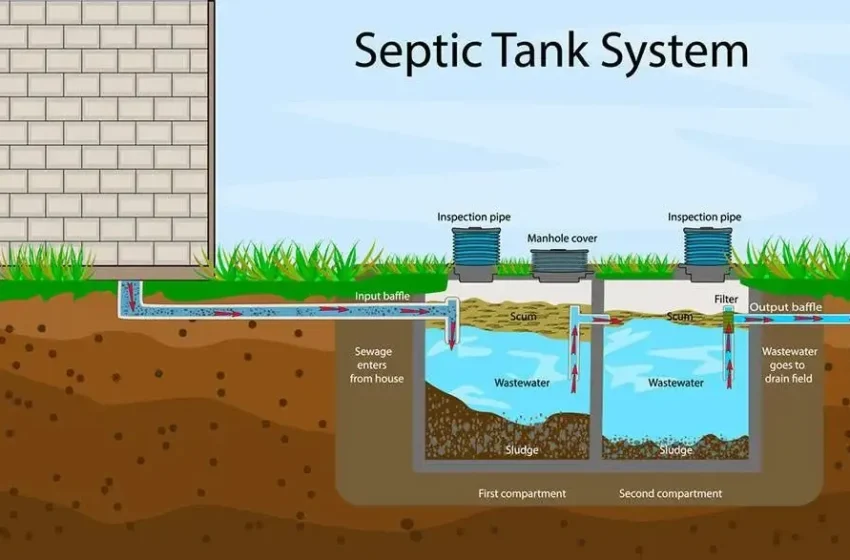
Septic Tank Pumping: Addressing Common Homeowner Concerns
Septic tank pumping is a vital aspect of maintaining a septic system and ensuring a healthy and sanitary living environment. However, many homeowners have questions and concerns about this essential maintenance task. In this article, we will address some of the most common concerns that homeowners have regarding septic tank pumping, providing answers and guidance to help you make informed decisions about your septic system’s care.
1. How Often Should I Pump My Septic Tank?
The frequency of septic tank pumping depends on several factors, including the tank’s size, the number of occupants in your home, water usage habits, and the condition of the tank. On average, septic tanks should be pumped every 3 to 5 years. However, it’s essential to have a professional assess your specific circumstances and recommend a pumping schedule tailored to your needs.
2. What Happens if I Don’t Pump My Septic Tank Regularly?
Neglecting regular septic tank pumping can lead to several problems, including:
- Accumulation of solids and sludge in the tank, reducing its capacity.
- Risk of clogs and backups in your plumbing.
- Increased odors from the septic tank.
- Potential damage to the drain field due to solids entering it.
- Costly repairs or even the need for a complete septic system replacement.
3. Can I Add Additives to My Septic Tank to Avoid Pumping?
It’s not recommended to rely solely on septic additives or treatments to replace septic tank pumping. While some products claim to break down solids or enhance bacterial activity, they are not a substitute for routine pumping. Proper maintenance includes both regular pumping and responsible product use, if desired.
4. How Can I Tell If My Septic Tank Needs Pumping?
Signs that your septic tank may need pumping include:
- Slow drains or gurgling noises in plumbing fixtures.
- Foul odors around the septic tank or drain field.
- Sewage backups in your home.
- Lush vegetation or standing water over the drain field.
- Visual inspection of the tank showing a high level of solids.
If you notice any of these signs, it’s advisable to contact a septic professional to assess your system’s condition.
5. Is DIY Septic Tank Pumping Safe and Legal?
The legality and safety of DIY septic tank pumping vary by location. Some areas may allow homeowners to perform their septic tank pumping, while others require licensed professionals to handle the task. It’s crucial to check local regulations and consider safety precautions before attempting DIY pumping. In many cases, hiring a qualified septic professional is the safest and most responsible approach.
6. Can I Pump My Septic Tank Myself?
If local regulations allow for DIY septic tank pumping, it’s technically possible to pump your septic tank yourself. However, it’s a complex and potentially hazardous task that requires specialized equipment and safety measures. Hiring a professional with the necessary expertise and equipment is strongly recommended to ensure the job is done correctly and safely.
7. What Happens During Septic Tank Pumping?
Septic tank pumping typically involves the following steps:
- Locating and exposing the septic tank access cover.
- Removing the cover to access the tank’s contents.
- Pumping out the accumulated solids and sludge from the tank.
- Inspecting the tank and components for any signs of damage or issues.
- Replacing the access cover securely.
8. How Can I Maintain a Healthy Septic System Between Pumpings?
To maintain a healthy septic system between pumpings, consider the following tips:
- Practice water conservation to reduce strain on the system.
- Avoid flushing non-biodegradable items down the toilet or drains.
- Use septic-safe products, including toilet paper and cleaning products.
- Have your septic system regularly inspected by a professional.
- Address plumbing issues promptly to prevent damage to the system.
- Be mindful of what you put into your garbage disposal, as it can affect your septic system.
9. Can I Install a Garbage Disposal with a Septic System?
While it is possible to have a garbage disposal with a septic system, it’s essential to use it responsibly. Disposing of excessive food scraps and non-biodegradable items through a garbage disposal can increase the load on your septic system, leading to more frequent pumpings and potential issues. Use the disposal sparingly and prioritize composting or regular disposal methods for food waste.
10. How Do I Choose a Qualified Septic Professional?
When selecting a septic professional for pumping and maintenance, consider the following factors:
- Verify their licensing and certification, if required in your area.
- Check for references or reviews from previous clients.
- Inquire about their experience with septic systems similar to yours.
- Obtain written estimates and compare prices.
- Ensure they adhere to local regulations and environmental standards.
Conclusion
Septic tank pumping is a critical aspect of responsible septic system maintenance. By understanding the importance of regular pumping, signs that indicate the need for pumping, and the role of septic professionals, homeowners can ensure the longevity and proper functioning of their septic systems. Addressing common concerns and taking proactive steps to care for your septic system will help you avoid costly repairs, maintain a healthy living environment, and promote responsible homeownership.

